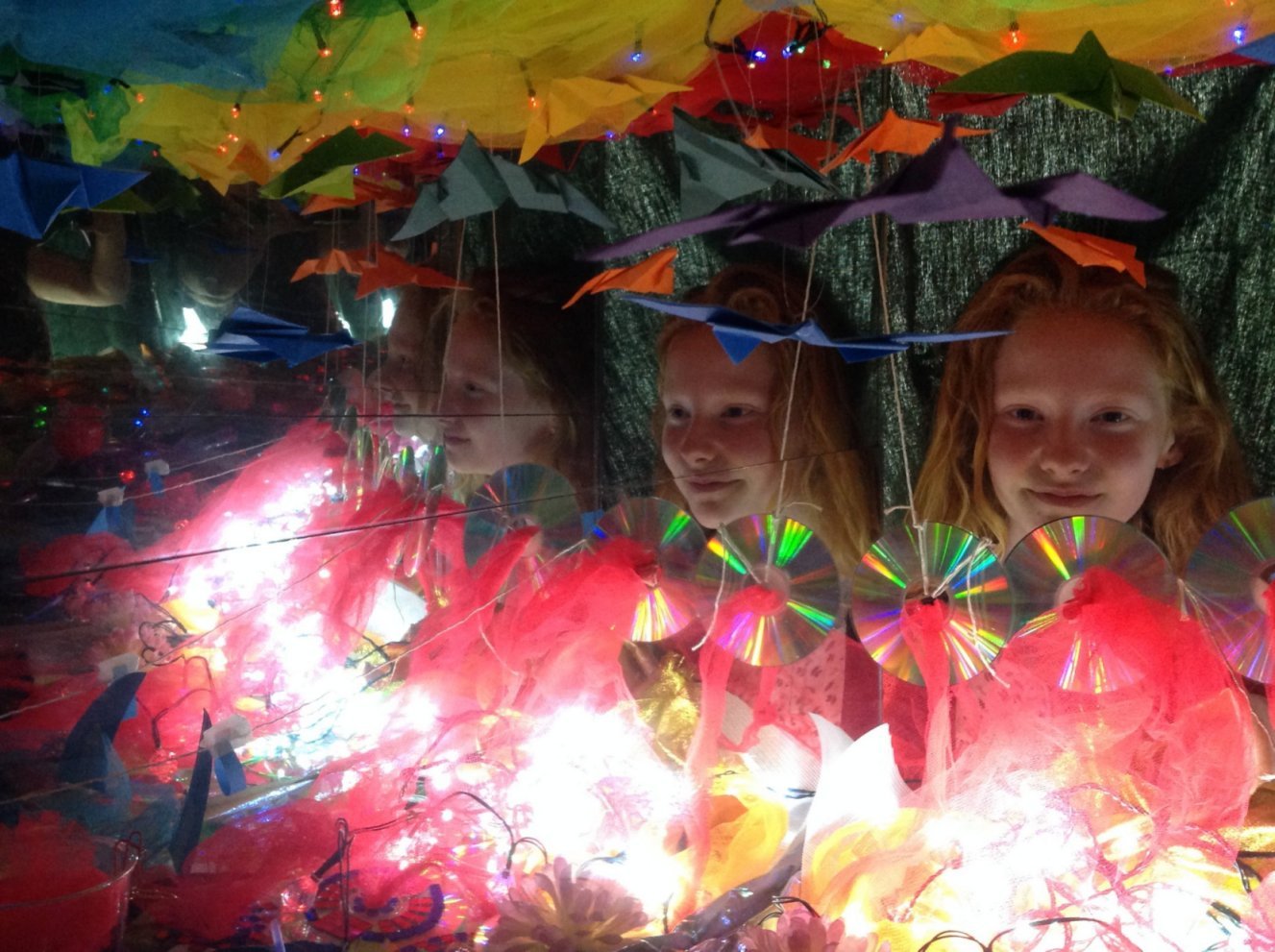
A child views the Infinity Box at Turner Contemporary
Repositioning a service
Tony Witton reports on the changes Kent County Council’s arts and culture service has made since asked to find new ways to pay for itself.
Over the past two years, we have repositioned the Arts and Culture Service at Kent County Council, not necessarily in the type of work we do but the way we do it and the way we talk about it. While formerly driven by an applicant-led, grant-based approach, we are now more proactive – identifying key partners, supporting them to develop as leaders and encouraging them to work together. By supporting these emerging clusters, we aim to provide strategic direction and attract investment to an otherwise disparate sector.
We were told that the arts is useful, people like what we do and our service adds value, but we needed to find different ways to pay for it
So what does that look like on the ground? We moved into the economic development department a year ago, but before that we had already started articulating our work in terms of delivering economic, social and environmental outcomes. We have since focussed this further and now talk about our work delivering economic growth, skills development and community wellbeing and are gaining a reputation with colleagues for supporting a range of services to deliver the council’s commitment to social value.
As a council, we are undergoing restructure and refocus. Driven by the need to secure high-quality services despite financial pressures, we are looking at new ways of doing business. A new commissioning framework sets out the principles for the procurement of services in an inclusive and transparent way that delivers not only good value for money but also social value. Linked to this is an outcomes framework which identifies what we should be delivering as a council to meet the needs of our customers.
We were told that the arts is useful, people like what we do and our service adds value, but we needed to find different ways to pay for it. So that is exactly what we have begun to do. Externally, we have established the sector-led cultural transformation board to provide strategic direction to the way in which we support the sector and help to change the way it works. The aim is to develop stronger, sustainable and diverse business models, as established patterns of public subsidy come under increasing pressure. Internally, we are working collaboratively and have demonstrated that we can achieve significant leverage and develop strategic partnerships that are instrumental in delivering wider economic and social outcomes.
Nationally, we successfully bid to become one of only two commissioning partners in the country on Arts Council England’s Cultural Commissioning Programme. Working in conjunction with public health colleagues, Artswork and the Royal Opera House, and with input from NCVO and the New Economics Foundation, we are able to test more creative approaches to commissioning.
Working with colleagues across the council we are influencing the shape of the county’s commissioning framework to bring about lasting policy change. For example, we jointly invested in a pilot as part of Kent’s programme to promote ‘Six ways to wellbeing’. Its aim was to commission projects delivering health outcomes and at the same time create a learning and support mechanism to grow the capacity of arts organisations to become ‘commission-ready’. Through the pilot, six projects were commissioned. Led by arts and cultural organisations, including Turner Contemporary, Jasmin Vardimon Dance Company, Icon Theatre and Ideas Test, the projects delivered positive health outcomes for vulnerable, young people in targeted areas in Kent and Medway.
The practical advice and learning gained informed the creation of an animated, online toolkit, launched in June to help the arts and culture sector navigate the seemingly mystifying and complex process of commissioning. It contains detailed and easy-to-understand resources covering all aspects of the process, from responding to tenders and delivering projects to monitoring contracts and evaluating success. It also gives an overview of the whole commissioning process and analyses the preparation organisations will need to do to become commission-ready.
So what next? We have extended our partnerships to include early help and preventative services, strategic and corporate services, and even waste management and highways. We will test-drive the toolkit with a series of new cultural commissions. We will hold ‘meet the market’ events to introduce arts and cultural organisations to the bigger contract providers and help those providers learn how our sector can deliver some of the social value requirement of their contracts.
Our success has undoubtedly been due to the partnerships we have built, an approach that has been made much stronger and more visible through collaboration with our Bridge organisations. Together, we are now sitting round the right tables to embed the arts centrally into a range of different services. We must not forget that it is the arts and cultural organisations that make the whole thing a success, partly through their ability to be flexible and business-like, but overall through their passion and skills in delivering excellent art.
Tony Witton is Arts and Culture Manager at Kent County Council.
www.kent.gov.uk
E [email protected]
Join the Discussion
You must be logged in to post a comment.